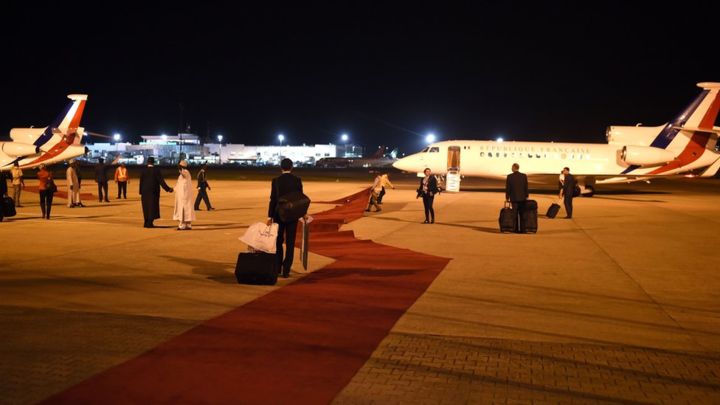- Domestic Airlines Airlift 1.5m in Q, 2017
Nigerian airlines airlifted about 1, 514,616 passengers in the first quarter of 2017, reports from the Nigerian Civil Aviation Authority (NCAA) revealed.
This is as industry experts have urged the airlines to ensure effective maintenance of their aircraft to sustain current good safety record in the country.
According to the NCAA, domestic airlines operated 10, 366 flights during the period under review, with Air Peace operating the highest number of 3, 262 flights.
The airline airlifted 289,613 inbound passengers and 233,517 outbound passengers, totaling 523, 130, which is about 40 percent of the total passenger movement during the period.
The NCAA also noted that there were a lot of flight delays by both domestic and international airlines in addition to cancelling of high number of flights in the first quarter.
Leading the pack in flight cancellation in the regional and international routes was Arik Air, which recorded 37 out of the total 54 cancelled flights and delayed 244 of the 295 flights it operated on the regional and international routes in the period under review.
The report also showed that international airlines operated a total of 3,033 flights into Nigeria, out of which a total of 1,220 of the 3,033 (40.2 percent) flights were delayed.
Also, a total number of 54 flights, representing 1.7 percent, were cancelled by the 30 airlines on the regional and international routes in the quarter.
Out of the 54 cancelled flights, Arik Air had 37, which represented 68.5 percent of cancelled flights within the period. Asky Airlines had two cancelled flights; British Airways, one; Cronos Air, one; Delta Air Lines, three; Ethiopian Airline, one; Kenya Airways, one; Lufthansa, one; Med-View Airways, three; South African Airways, two and Virgin Atlantic Airways, two.
Air Peace, Aero Contractors, African World, Air Cote D’Ivoire, Air France, Camair-Co, Dana Air, Egypt Air, Emirates, Etihad, KLM, Meridiana, Middle East, Qatar, Royal Air Marco, Rwandair, Saudi Air, Sudan Airlines and Turkish Airlines, which operate on the regional route, had no cancelled flights within the period.
While Air Peace delayed seven of its 36 flights out of Nigeria in the first quarter, the NCAA report said Arik Air led in the number of delayed flights. It delayed 244 of its 295 flights on the regional and international routes.
Meanwhile, industry experts have called on the airlines to sustain the current safety record being enjoyed in the country by ensuring that they keep to the maintenance standard of their aircraft types, notwithstanding the forex challenges and the high cost of maintenance.
The former Commandant of the Murtala Muhammed International Airport (MMIA), Lagos and the Secretary of Aviation Round Table (ART), Group Captain John Ojikutu, said that cutting corners in terms of maintenance is a major challenge for Nigerian airlines because of the present cash crunch in the country, noting that “the talk about old or new aircraft does not matter; that what matters is maintenance.”
Speaking in the same vein, a former CEO of Nigeria Airways Limited and currently the Managing Director/ Chief Executive of Skypower Express Airways, Captain Mohammed Joji said that there is nothing like old aircraft when it is properly maintained, noting that what is always important is how properly an airline maintains its fleet.
According to him, “An old aircraft is as good as new when it is properly maintained but a new aircraft is as bad as old aircraft when it is not properly maintained. All aircraft are new when they are properly maintained and you could be operating them until you are tired or you change them for economic reasons.”

 Forex3 weeks ago
Forex3 weeks ago
 Naira3 weeks ago
Naira3 weeks ago
 Billionaire Watch3 weeks ago
Billionaire Watch3 weeks ago



 Naira3 weeks ago
Naira3 weeks ago






 Naira3 weeks ago
Naira3 weeks ago




 Naira2 weeks ago
Naira2 weeks ago






 Naira2 weeks ago
Naira2 weeks ago




 Naira4 weeks ago
Naira4 weeks ago
























